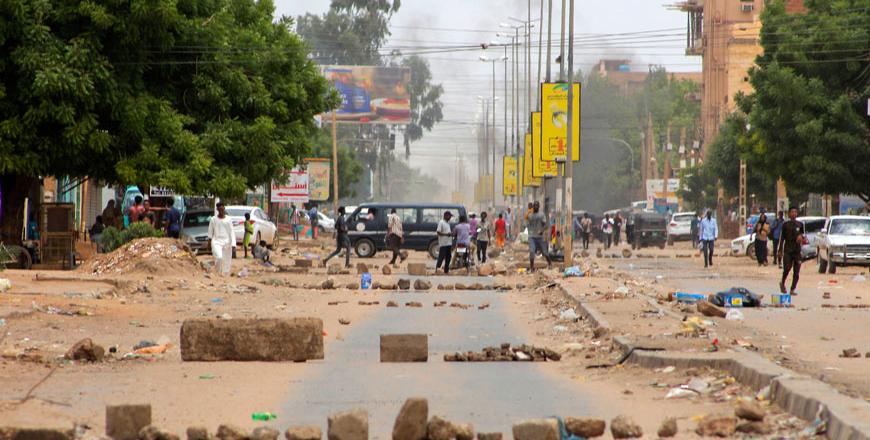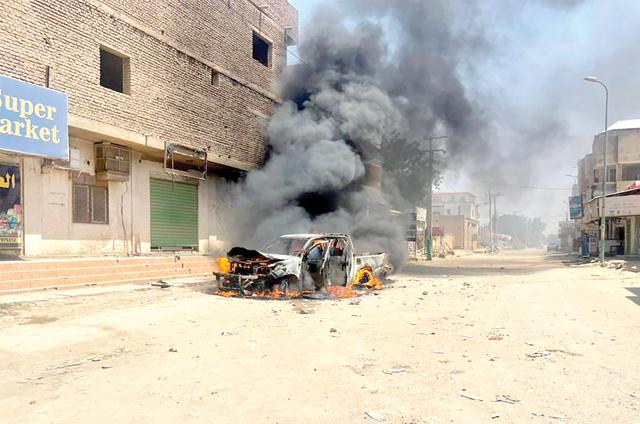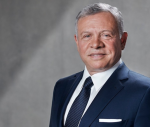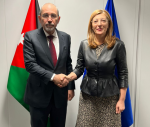You are here
Sudan forces fire tear gas at protests as death toll from tribal clashes rises
By AFP - Jul 17,2022 - Last updated at Jul 17,2022

Smoke billows as Sudanese protesters take part in an anti-coup demonstration on a barricaded street in the Daym — Bashdar station area in central Khartoum, on Sunday (AFP photo)
KHARTOUM — Police fired tear gas in Sudan's capital Khartoum on Sunday against hundreds of anti-coup protesters who also called attention to increasingly deadly tribal clashes in the country's south.
The capital has been the scene of near-weekly protests since army chief General Abdel Fattah Al Burhan launched a power grab in October last year that derailed a transition to civilian rule.
The coup saw key donors pull the plug on funding, exacerbating a long-running economic crisis and feeding into inter-communal unrest in remote parts of the country.
Blue Nile state, bordering Ethiopia, is the latest crucible of tribal clashes — and on Sunday, authorities there raised the death toll to 60, from 33 the previous day, in fighting that began nearly a week ago.
"Al Damazin is bleeding," read a sign held up by a Khartoum protester, referring to the provincial capital of Blue Nile.
Other demonstrators in the capital chanted: "Sudan is one nation" and "No to racism, no to tribalism”.
In the city of Wad Madani, some 200 kilometres south of Khartoum, protesters diverted their demonstration to the local hospital to "donate blood to our brothers wounded in tribal clashes in Blue Nile", protest organiser Ammar Mohammed told AFP.
'Violence not a solution'
The clashes in Blue Nile state, between the Berti and Hawsa tribes, first erupted last Monday.
The violence came after the Berti tribe rejected a Hawsa request to create a "civil authority to supervise access to land", a prominent Hawsa member had told AFP on condition of anonymity.
But a senior member of the Bertis had said the tribe was responding to a "violation" of its lands by the Hawsas.
Dozens of Hawsas blocked the western entrance to the western city of Kassala with burning tyres and stones "in solidarity with our people in the [Blue] Nile, to stop their murder and displacement", said protester Mohammed Abkar.
The revised death toll of 60 was provided by Blue Nile health minister Jamal Nasser, who also told AFP that 163 people have been wounded.
"Violence is never a solution," UNICEF tweeted Sunday, in a country where the UN estimates half the population will be pushed into extreme hunger by September.
Post-coup
security vacuum
The Sudan People's Liberation Movement-North, the main armed faction in Blue Nile, denied on Sunday any involvement in the clashes.
Pro-democracy demonstrators accuse Sudan's military leadership and ex-rebel leaders who signed a 2020 peace deal of exacerbating ethnic tensions in Blue Nile for personal gain.
Security forces had erected road blocks on bridges crossing the Nile linking Khartoum to its suburbs, AFP reporters said, to deter protesters who vowed to take to the streets in large numbers to protest against Burhan.
Sudan's latest coup sparked regular protests and an ongoing crackdown by security forces that has killed at least 114, according to pro-democracy medics.
Nine were killed on June 30, the medics said, when tens of thousands gathered against the military.
Early this month, Burhan vowed in a surprise move to make way for a civilian government.
But the country's main civilian umbrella group rejected his move as a "ruse" and protesters have continued to press the army chief to resign.
The rallies on Sunday follow a period of relative calm in Khartoum in recent days.
Experts say last year's coup created a security vacuum that has fostered a resurgence in tribal violence, in a country where deadly clashes regularly erupt over land, livestock, access to water and grazing.
Guerrillas in Blue Nile battled former strongman president Omar Al Bashir during Sudan's 1983-2005 civil war, picking up weapons again in 2011.
Prompted by enormous protests against his rule, the army ousted Bashir in 2019.
The following year, a civilian-military power-sharing government reached a peace deal with key rebel groups, including from Blue Nile as well as the war-ravaged western Darfur region.
Both areas remain underdeveloped and awash with weapons and there has also been an increase in violence in Darfur in recent months.
Related Articles
KHARTOUM — Thousands of Sudan's Hawsa people set up barricades and attacked government buildings in several cities on Monday, witnesses said
KHARTOUM — At least 31 people have been killed in clashes this week between two tribes in Sudan's Blue Nile state bordering Ethiopia,
KHARTOUM — Thousands of Sudan's Hausa people protested in multiple cities on Tuesday, demanding justice for dozens of comrades killed
















